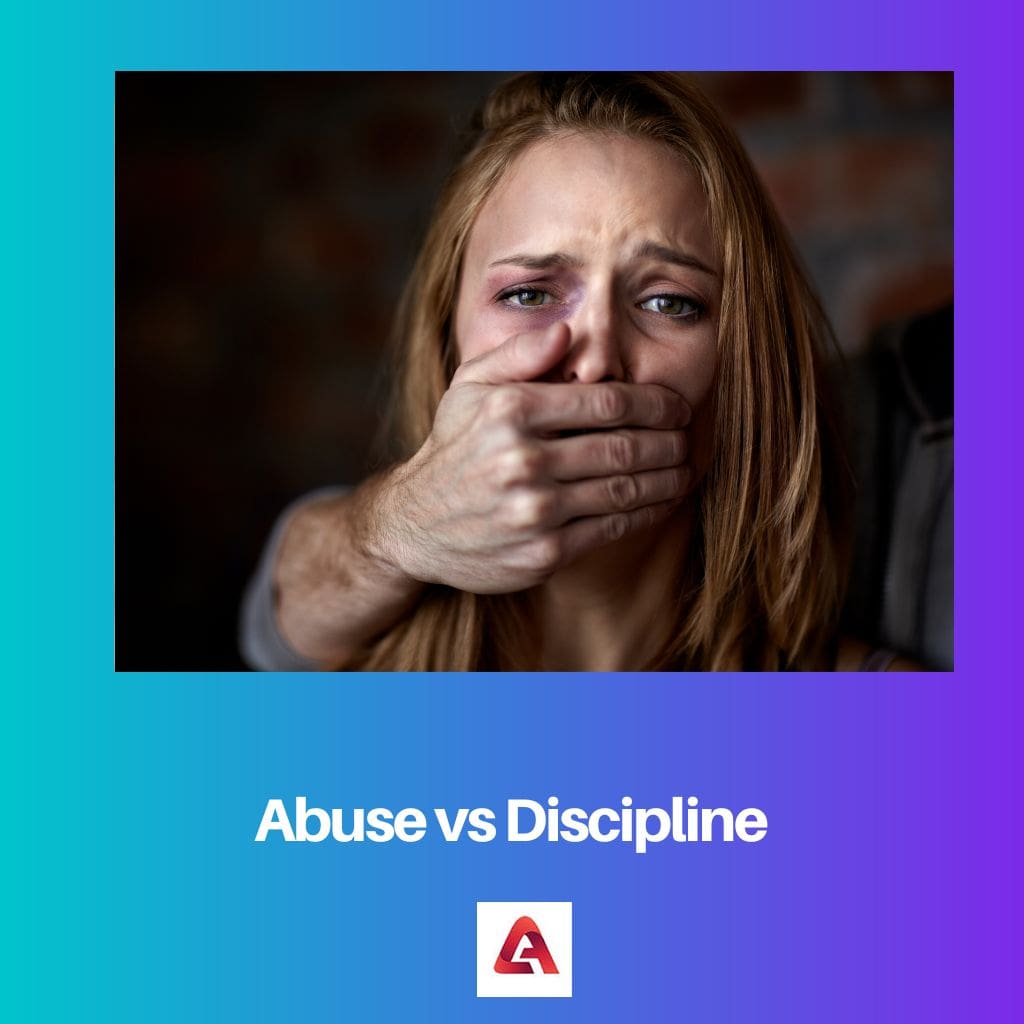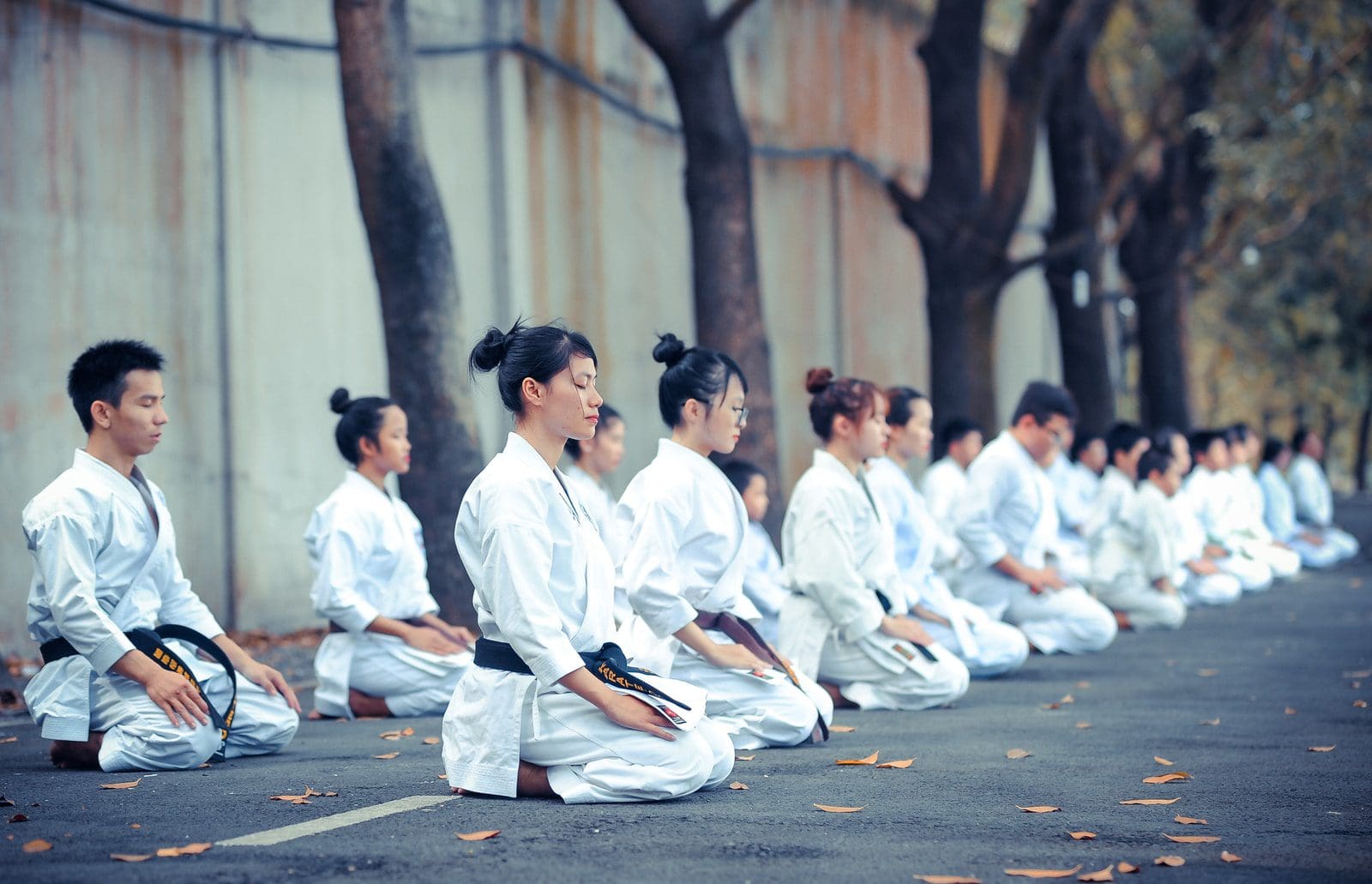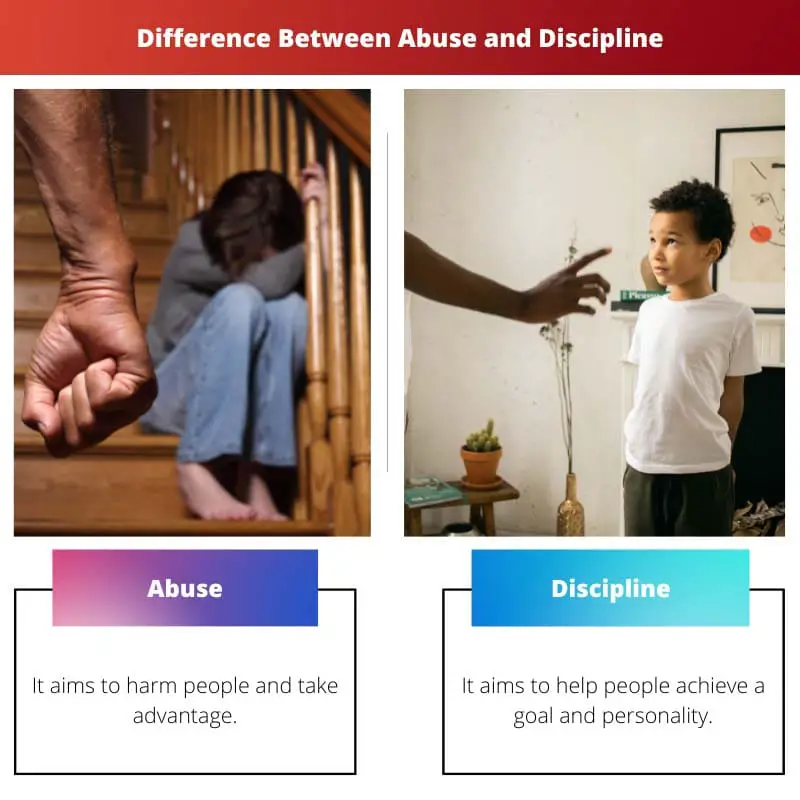If you have a child, you must be worried about their overall growth. You must have put in place some roadmap they need to follow, and why not? Kids are open-minded and can learn about the universe.
But not everything in the universe is appropriate for a child. In pursuit of giving our children the best set of behavior, we sometimes tend to overdo the roadmap, and it may take an ugly turn for them.
The fine line between discipline and abuse blurs as we overdo the roadmap. It is mandatory to grapple with reality and understand when to draw the line.
Key Takeaways
- Abuse causes physical, emotional, or psychological harm, while discipline aims to correct or teach appropriate behavior.
- The abuse stems from a need for power and control, while discipline focuses on setting boundaries and establishing consequences.
- Discipline should be consistent and fair, whereas abuse is unpredictable and excessive.
Abuse vs Discipline
Abuse is any behavior or action that causes harm or distress to another person. This can take many forms, such as physical abuse, emotional abuse, sexual abuse, and neglect. Discipline is the use of strategies to help someone learn and grow. This can include setting boundaries, enforcing rules, etc.

As we grow, we tell and are told what to do and what not. This continuous nagging by society and people helps us form an identity.
But sometimes those naggings come intending to harm us or take advantage of our vulnerabilities. When we find rules that traumatize us or are inappropriate in any way, those rules or naggings are what we call abuse.
Sometimes what we call discipline may be a form of abuse, if it demands inappropriate action on our behalf.
This world has so much to offer, and at times we feel lost in choices. We need to make decisions about what to do and what not.
To achieve regularity to attain our goal we need some rules and regulations to put things into perspective. Those rules are nothing but discipline.
Disciplines are characteristically harmless and foster growth. They help us put life in perspective and make an identity for ourselves. Discipline is pervasive— we learn about it in schools and homes.
Comparison Table
| Parameters of Comparison | Abuse | Discipline |
|---|---|---|
| Nature | Abuse is always coercive. | It is constructive. |
| Aim | It aims to harm people and take advantage. | It aims to help people achieve a goal and personality. |
| Usefulness | It is not useful in any way. | It is useful as it helps us achieve our goals. |
| Effects | Its effects are negative and leave people with trauma. | Its effects are constructive and help people reach peace of mind. |
| Definition | Abuse is discipline over imposed to harm people. | Discipline is an imposed rule to give life direction and meaning. |
What is Abuse?
When people misuse their authority, knowledge, power, etc., gain advances, and harm people their act is abusive. Abuse is always destructive and harmful.
People abuse their power to hurt people physically and mentally. Abuse may leave people traumatized and in a state of fear. Abuse is adaptive as it takes forms.
It can manifest itself as trust abuse, abuse of information, authoritative abuse, etc. depending on the nature of exploitation it attempts to make.
Abuse of authority is exercised by people with the position. It is the root cause of corruption.
When people with some authority ask people to do something for their personal gain in their official capacity it gives rise to corruption.
The abuse of power is when people in authority misuse their power over people with less power. The abuse of power is prevalent in the workplace, and its manifestations are harassment, unexplained favor, etc.
Abuse could be harmful to dignity, mental and physical health, etc. It can manifest itself in various forms. It could be in form of verbal abuse, rape, violation of one’s authority and rights, or any type of aggressive act.
It may be socially constructed as it may have been appropriate in some time or some part of the society. In ancient times people with mental health were tortured.
It was believed that the person is possessed by some demon and the best way to woo it is to make the body miserable.

What is Discipline?
Discipline is an intended action to reach a goal. The intended action may be in line with rules laid down by some form of authority such as school, government, family, religion, etc.
The laid down rules are aimed at bringing some behavioral change in the concerned subject. It can also be defined as an expected set of actions from the organization by an animal or people.
Discipline has many forms one of which is self-discipline. Self-discipline is creating boundaries to use your time efficiently and towards a goal that is personal.
It could be anything that can help you find self-discipline. It could be new habits such as reading a book that helps you achieve a personal goal.
You could also develop new thinking that could help you out of your regular comfort zone.
Discipline helps you improve the overall quality of life, health, and helps you manage a balance between different aspects of your life.
A child is subjected to rules and regulations to put his life on track and give him tools to understand life and the challenges posed by life.
For adults, discipline means getting out of their comfort zone and developing new habits to bring positive change.

Main Differences Between Abuse and Discipline
- Abuse pushes one’s life into a constant circle of mental and physical torture, whereas discipline helps break bad habits and put life on track.
- Discipline always has a positive intent and helps people achieve their goals, whereas abuse has a negative intention and derails the growth of a person.
- Discipline means breaking out of our bad habits, whereas abuse forces us to pursue bad habits.
- Discipline is a kind of mental conditioning with good intention, whereas abuse is mental conditioning with bad intention.
- Abuse contributes negatively to life, whereas discipline contributes positively to a life.




